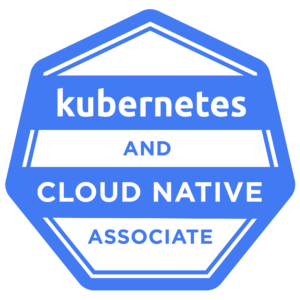New certification exam from CNCF and The Linux Foundation will test basic knowledge of Kubernetes and cloud native architectures
LOS ANGELES – KubeCon + CloudNativeCon North America – October 13, 2021 – The Linux Foundation, the nonprofit organization enabling mass innovation through open source, and The Cloud Native Computing Foundation® (CNCF®), which builds sustainable ecosystems for cloud native software, have announced the Kubernetes and Cloud Native Associate (KCNA) exam is now in beta testing. The certification is expected to be generally available by the end of this year.
KCNA will consist of a multiple-choice certification exam testing entry-level knowledge and skills in Kubernetes and the wider cloud native ecosystem. This exam is intended to demonstrate this knowledge, including how to deploy an application using basic kubectl commands, the architecture of Kubernetes (containers, pods, nodes, clusters), understanding the cloud native landscape and projects (storage, networking, GitOps, service mesh), and understanding the principles of cloud native security.
The recently released 2021 Open Source Jobs Report found that knowledge of cloud and container technologies is the most in demand skill set among hiring managers, but 92% of those hiring managers are having difficulty finding enough talent. Coupled with the 72% of employers surveyed reporting that they are more likely to hire someone with a certification, these trends drove CNCF and The Linux Foundation to develop KCNA to help bring more entry-level talent into the field.
KCNA is intended to prepare candidates to work with cloud native technologies and pursue further CNCF credentials, including Certified Kubernetes Administrator (CKA), Certified Kubernetes Application Developer (CKAD), and Certified Kubernetes Security Specialist (CKS). Specific knowledge to be tested will include:
- Kubernetes Fundamentals (46%)
- Including resources, architecture, APIs, containers, and scheduling
- Container Orchestration (22%)
- Including container orchestration fundamentals, runtime, security, networking, service mesh, and storage
- Cloud Native Architecture (16%)
- Including cloud native architecture fundamentals, autoscaling, serverless, community & governance, personas, and open standards
- Cloud Native Observability (8%)
- Telemetry & observability, Prometheus, and cost management
- Cloud Native Application Delivery (8%)
- Application delivery fundamentals, GitOps, and CI/CD
“Digital transformation activities are occurring at organizations around the world at an increasingly rapid pace, and a huge amount of this transformation is driven by, and reliant on, the cloud,” said Clyde Seepersad, SVP, and general manager of training & certification at The Linux Foundation. “The industry cannot rely on any single solution, whether that is training existing teams, improving hiring incentives, or bringing in consultants to address the talent gap. KCNA provides a clear onramp for those considering a role working with cloud technology, and serves as a first step in pursuing career paths in cloud administration, engineering, application development, security and more.”
“Training and certification are highly sought by the cloud native community, with over 100,000 registrations to date for Kubernetes exams,” said Katie Gamanji, Ecosystem Advocate, CNCF. “Existing certification programs have been aimed at skilled professionals who have hands-on expertise in production environments. Community feedback has revealed the need for a more beginner-friendly and inclusive evaluation, which is relevant to newcomers across different jobs, from engineers to product managers to marketing. KCNA fills this gap as an entry-level certification that invites new adopters to demonstrate their skills and knowledge of the cloud native ecosystem.”
The exam was developed in partnership with Certiverse. The company’s online platform enabled a global group of 15 subject matter experts to create test content asynchronously.
The KCNA exam will be available for general availability later this year. More information about the exam and topics to be covered in it is available here.
About Cloud Native Computing Foundation
Cloud native computing empowers organizations to build and run scalable applications with an open source software stack in public, private, and hybrid clouds. The Cloud Native Computing Foundation (CNCF) hosts critical components of the global technology infrastructure, including Kubernetes, Prometheus, and Envoy. CNCF brings together the industry’s top developers, end users, and vendors, and runs the largest open source developer conferences in the world. Supported by more than 500 members, including the world’s largest cloud computing and software companies, as well as over 200 innovative startups, CNCF is part of the nonprofit Linux Foundation. For more information, please visit www.cncf.io.
About the Linux Foundation
Founded in 2000, the Linux Foundation is supported by more than 1,000 members and is the world’s leading home for collaboration on open source software, open standards, open data, and open hardware. Linux Foundation’s projects are critical to the world’s infrastructure including Linux, Kubernetes, Node.js, and more. The Linux Foundation’s methodology focuses on leveraging best practices and addressing the needs of contributors, users and solution providers to create sustainable models for open collaboration. For more information, please visit us at linuxfoundation.org.
The Linux Foundation has registered trademarks and uses trademarks. For a list of trademarks of The Linux Foundation, please see its trademark usage page: www.linuxfoundation.org/trademark-usage. Linux is a registered trademark of Linus Torvalds.
# # #


